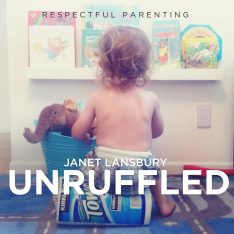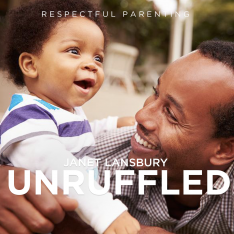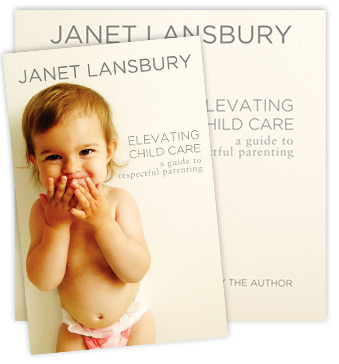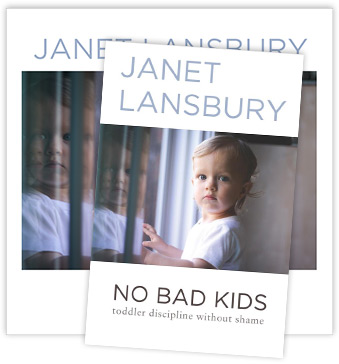Successful parenting isn’t about getting our kids to college — it’s about what happens when they come back home. That is the one useful message I took away from “The Return of the Natives”, Jan Hoffman’s New York Times article about distant and disrespectful young adults spending their first college winter breaks with their parents.
“Your student, who will arrive home a wrung-out, post-finals mess, will be sleep-deprived, laundry-laden and with four to six weeks to drive everyone, themselves included, crazy”, asserts Hoffman. She goes on to share discouraging anecdotes of parents who “couldn’t survive 4 weeks” in the company of children they barely recognize (after spending just a few months at college) and quite obviously don’t enjoy.
How depressing is that?
The parents profiled in the article seem destined to become the tiresome in-laws, the grandparents whose children and children’s children would prefer to avoid them at holidays, the aging parents to whom their children feel less and less connected. Rather than “absence making the heart grow fonder,” these families have become strangers in just a few short months, which makes one question the quality, authenticity and focus of their 18-year relationship before college. Were they always this miserable together?
After first wondering “who are these people?” I realized it didn’t really matter. I was more annoyed that the author would portray these scenarios as the norm when they couldn’t be more different from my own experience. Parents of young ones should know: this is not the way it has to be.
Granted, it’s easy to lose our way when our success-driven society doesn’t encourage (or really even recognize) our number one duty as parents: forging a relationship with our child that is grounded in trust, acceptance and respect. But if we can let go of all other parenting agendas and keep striving for these ideals, my experience says we’ll count the days until our college student returns home, savor the precious time together, and burst with pride and gratitude for the extraordinary child we’ve raised.
Here are some key ways to foster a positive and lasting parent/child relationship and avoid the situations presented in “The Return of the Natives”:
1. Stop “doing”and start discovering your child
There’s a pervasive attitude in our culture that children can’t do anything unless we show or do it for them. We’re encouraged to interact with our children as if they are our most important projects rather than uniquely gifted, whole people who will mature and evolve in their own way. The well-intentioned meddling that we might believe to be our job only teaches our children deep down that they really don’t satisfy us. The rift and discomfort begins.
How does it happen? Well, we might begin directing our child’s development in small, innocent ways like assuming (or fearing) that our baby won’t get “tummy time” unless we make that happen as soon as possible, so we never have the opportunity to understand or appreciate our infant’s individual process and accomplishment. We might also assume we should hand our baby toys because she needs to practice grasping, and immediately thereafter insist she must give it to another baby and “share”. We prop her so she’ll learn to sit; slide her down the slide to teach her how to have fun; coax her to sit still for a story or learn to count even though she shows no interest.
Our best intentions (and well-meaning outside influences) lead us to make all the choices for our kids because we don’t believe them capable of making good choices for themselves (or even choosing at all). And the more we do, the less we really see our child.
If this dynamic continues, our children eventually become accustomed to being directed and urged forward, and in the process stop trusting the voice within and lose touch with themselves. It can become increasingly difficult for them to discern the difference between their interests and our wishes for them.
Jump ahead 18 years… They’ve been out in the world for a few months with no one directing or second-guessing their every move, been given a little room to grow. No doubt, it’s exhilarating, and they discover things about themselves they never knew. But then they come home from college, and the dynamic is the same as it ever was. They’re strangers to their parents and — to a great extent — strangers to themselves.
One of Hoffman’s families finally resolves their awkwardness by continuing to direct their boys as they’d obviously always done: “Ever since their sons’ freshman winter breaks the Summers have insisted that the boys volunteer or work during subsequent breaks to keep a schedule.”
Um… so, these young adults have no interests of their own to pursue? At what point will they be allowed to take ownership of their lives?
2. Be curious, pay attention and accept.
So, instead of working so hard to engineer our child’s development, doubting him or her (and ourselves), we can begin a more rewarding parenting journey by realizing that we do not make our children what they will become — we only facilitate the development of what’s inevitable. Where our power does lie is in ensuring our children feel self-confident and connected to us. Acceptance is the key. Rather than focusing our work on the successful image we might have for our children, we’re advised to take a good long look (around 18 + years’ worth) at the perfectly imperfect kids we have and make it our job to appreciate them “as is”.
It helps to practice observing our babies and become play “followers” so we learn as much as we can about our child, all the while projecting a trusting, accepting message.
Later, acceptance means letting our kids be the ones to choose to play baseball, tuba, have a rock collection or none of the above and understanding that exposing our child to ballet means reading “Angelina Ballerina” or peeking through the window as we amble past a ballet class in session. It doesn’t mean signing our child up for eight weeks (or even two), because for our bright, aware child that implies we believe he should be enjoying ballet dancing right about now…and be pretty good at it, too. But this ballet class has nothing to do with our child – it’s about us.
Which reminds me of the bizarre assumption (made repeatedly in “The Return of the Natives”) that parents won’t recognize their children after their first months at college. Preposterous!
True, as with any type of transition, moving back entails some logistical adjustments. And certainly our child will return from her first months at college with new and exciting things to share. But not recognizing the kids we’ve been observing and accepting since birth? It’s a most absurd notion. Unless, of course, we’ve been confusing ourselves with our child all along.
3. Trust
Can trust be said enough times? Trust should be our mantra. It is the secret to the most successful parenting and also the secret to enjoying it. Trust in our child, along with the magic word “wait”, help us to stay our course when friends, family, and unenlightened professionals imply that we’re not doing enough, and/or our child isn’t keeping up. Trust will remind us to let go of personal expectations for our child and to instead recognize and support the expectations she has for herself. Trust, trust, trust. It will never lead us astray.
4. Even discipline is about trust (not fear).
We need to step up and give our children the boundaries they need, but trust must always be our guide if we want to foster healthy self-discipline that also strengthens our parent-child bond. This means being gentle, strong leaders who are always on our child’s team offering unconditional love and respect.
This “mentoring” approach inspires children to internalize our values. They don’t like it when we say no, but because we are kind, fair and empathetic their admiration and love for us only grows. Later, our role naturally evolves from being a trusted leader to our adult child’s intimate friend.
But if we use punishments, threats, manipulation, tricks and distraction to try to control behavior, mutual disrespect develops. We foster an us-against-them relationship with our children that is likely to continue. This scenario from the “The Return of the Natives” illustrates: “For winter break, [the parents] wrote a contract for her and a friend who would be visiting: Sunday through Thursday curfew, 11:30 p.m.; Friday and Saturday, 12:30 a.m. First infraction? The friend finds other lodging. Second infraction? Daughter loses car for remainder of break. Third infraction? Daughter loses car for the semester.”
Sound like fun?
5. And finally — fall in love
It’s a teacher’s job to find something to appreciate about each of their students. It’s a parent’s job to fall crazy in love with their child. Not the child you wish you had, or wish you were, or wish you could help your child to be, but like Stephen Stills sang, “the one you’re with.” Then your reunions will be giddy and your child will always want to come home, but won’t really need to…because home will mean you and be forever embedded in your child’s heart.
Please let me grow as I be,
And try to understand why I want to grow like me,
Not like my mother wants to me to be,
Not like my father hopes I’ll be,
Or like my teacher thinks I should be,
Please understand and help me grow
Just like ME!
–Magda Gerber
At last! I’ve created the No Bad Kids Master Course to give you all the tools and perspective you need to not only understand and respond effectively to your children’s behavior but also build positive, respectful, relationships with them for life! Check out all the details at nobadkidscourse.com. ♥
(Photo by brunifia on Flickr )















Hi Janet, i have been reading &following your blog for some time now &really enjoy reading your posts. I dont have kids but love them &found your blog because i needed to know of a better way to parent since too many people think threats &spankings is the right way to go.
Back to the post…
I read the article you posted until i couldnt take it anymore (about two pages) & have been waiting to hear what you have to say. I myself am 24 & did the moving out thing when i was 17 & in highschool with my moms consent & support across the atlantic (to israel). In that time i spoke to my mom at least once a day &that ended when mom was preparing herself &siblings to move here 3yrs ago. I was the one who wanted to move here. I am the one who loves it here. I dreamt about living here all my life. I say that moving here is the best thing i could have done for myself &my parents agree. My point is that in the article parents dont trust their kids. If you dont trust them to make their own decisions how are they supposed to be able to handle being sent away?? As i said above i wanted to go to Israel. My parents trusted me and they believed in me &my abilities. Honestly i feel safer here than in Miami where i grew up. Since i can remember i had no curfew. I never needed one. Here my uncle who was my guardian told me to come home late (not before 3am). Everyone else is told to come home early. Here the night life starts midnight &all teens go out until 3/4am. Parents trust their kids. Schools have guards to protect the kids from terrorist attacks. Malls have guards for that too. Kids have the freedom to go almost anywhere they want. They walk to school, scouts, etc. I think controlling someone who is 18+ isnt just disrespectful its literally making them doubt themselves &their abilities. That makes them not confident &hurts them. I know parenting is hard but its super important to raise your kids to be confident adults. Thats what makes a difference.
Hi Sagi! Thanks for sharing your story. I totally agree with your last sentences: I think controlling someone who is 18+ isnt just disrespectful its literally making them doubt themselves &their abilities. That makes them not confident &hurts them. I know parenting is hard but its super important to raise your kids to be confident adults. Thats what makes a difference.
One of the many, MANY things I have appreciated about following Magda Gerber’s guidance is that the transition to independence is almost seamless. There is a recognition from the beginning that infants can do a few things independently and we make a point to trust them to do those things with our support (like initiate “play” activities, communicate, and participate actively with us as partners in their care). So, there is a very gradual “letting go and allowing the child to do”. There are no major adjustments to the relationship when children become toddlers, adolescents, or go to college and become adults. The trust and belief in our innately capable child is always there. Besides fostering a loving, enduring relationship, this trust also gives both child and parent self-confidence.
(And, BTW, Magda Gerber’s RIE approach is beginning to become popular in Israel!)
Yes I am starting to see that. I would love to know of a place I can learn RIE and even learn to teach RIE and be there because for me it’s a really big deal to treat kids correctly. I even managed to try some of the things I read on here with kids on my flight over here last week from visiting the USA and the baby just stopped crying when I acknowledged his feelings. It made me feel much better about myself to be able to handle this properly. Since I found out about your blog and a couple other sites I fell in love with the method and one of my college classmates is applying what you teach here to raising her son and it’s amazing to watch. Thank you very much for writing your blog.
As a 12 y.o. I had a traumatizing experience when my family and I went on vacation and we saw a couple who brought their baby with them on a tour of a cave and kept spanking him every 2minutes. I got so mad but didn’t know what to do. I knew my parents weren’t going to do anything about it but as you see it still upsets me to even think about it. That poor kid.
I am a very sensitive person so there are alot of things that bother me when I see it. Sometimes I can handle it and sometimes I can’t so I decided that when I can’t I need to do a google search to find a way to do it differently or at least learn how to do what I want to achieve from the beginning.
Thank you again 🙂
This happens to me as well. It’s like I have a superpower when it comes to children. I can hear them crying or being mistreated from a great distance away and I get very upset inside when I see a child this way or being mistreated in any way. one time it was a baby letting the infant scream it’s head off. I had to say to her to pick up the baby as it was so upsetting. She didn’t.
At least I know I am not alone in the sensitivity factor.
Wow great addition to another great article. Thanks Janet.
You basically just articulated everything I viscerally feel about parenting. Bravo.
I’ve been working on that, Shasta. 😉 Thanks!
I totally understand that we shouldn’t push our kids to do what they don’t want to do. But what if our kids don’t want to do anything .. just sit and watch TV, not take interest in life or have any hobbies. As parents are we suppose to just do nothing. I read in your comments that you don’t force your child to spend time with you which I totally agree with But what about family gatherings, going to grandparents house, or a relatives wedding, birthdays. Surely we have to also teach kids that sometimes we have to do things we don’t like in life. It can’t be all about bringing them up to do what they like. Or have I missed something?
She has talked about screen exposure. It changes the brain and is very dangerous for developing minds below 21 yo. So, to answer your question, it is your job to limit or eliminate screen exposure at home. After the young person has been in a healthy environment for her brain, you can let her choose. Of course screen addiction won’t let a kid want or enjoy social interaction.
Wow 1000000% agreed. I’m blown away.
I wanted to raise a different perspective on the issue at hand. My parents and I have (and had throughout my childhood) a very loving, close, and respectful relationship. My first semester of college, I didn’t suddenly experience freedom for the first time, and I didn’t go crazy. I was well prepared for that life of additional independence.
But my first winter back — and actually, many semester breaks after that — were very challenging for the three of us, nevertheless. I had gotten used to total independence: I woke up when I needed to, came home when I wanted, went where and when I wanted, went to sleep when I wanted. Coming back to my parents’ house as a respectful guest was a challenge! Looking back, I don’t believe it was excessively controlling of them to insist that I be home at a certain time of night, since my arrival would wake my dad, who had to get up for work at 4:30am. Nevertheless, it was a hard change for me to cope with – like any boundary suddenly newly enforced. I remember more than one occasion of me and my mom sitting in the floor of my childhood bedroom crying with the frustration of redefining our relationship, adult to adult.
I feel like your response to the article implied that if you and your child struggle to define or redefine boundaries and relationships in college, then you must not have done a good job parenting them, and I don’t believe that’s the case at all.
Shannon – I think it’s wonderful that you were able to work through this adjustment period with your parents and continue your loving relationship. Did you redefine other things, too, or was it just about the curfew? I’m honestly curious.
We had a lot of things to work out, including many mentioned in the article. Just some of the balances we had to work through:
– To what extent was I still their child (and thus subject to their rules) vs a peer adult, free to set my own rules?
– To what extent was I a family member, expected to do chores and abide by household rules, vs a guest in the home, largely exempt from these?
– To what extent were we acting as a family unit, taking meals and making plans together, vs. me acting as a roommate?
I remember dealing with things like how often I had to do things with them, being expected to tell them where I was going, chore balance, and spending time with my boyfriend.
I admit: I didn’t always make the most respectful choices. For example, even a houseguest may offer to help with dishes after a meal. It’s totally fair for a parent, for a homeowner, to enforce certain limits: You may not drink alcohol in our home. You may not sleep with your boyfriend in our home. It’s just that these limits won’t be the same ones that they were five months ago, and the student, who’s now had a taste of independent adulthood, can and MUST be a more active participant in deciding what those limits are.
To be entirely honest with you, these are not issues we ever fully resolved. I came back eight times, and each time we made a little more progress, and life got a little more harmonious a little more quickly. Then I got married, moved into my own home, and a lot of these questions became moot. I am a peer adult. I behave as a courteous guest when I’m at their house. We make plans together the way two households do. My parents will always be my parents, and I cherish them as a source of wisdom and guidance and unconditional love, but I’m also proud to say that we’re friends.
I guess my main point is that I think this readjustment is a totally normal of a teenager becoming an adult, and is going to happen even with the best family. Nothing in this article is alarming to me, it’s just one final phase of childhood to be worked through together.
This is so beautifully articulated. Thank you so much for taking the time to write it.
My pleasure! Thank you for such a kind comment.
To reply directly to some of your responses to the article:
“Um… so, these young adults have no interests of their own to pursue? At what point will they be allowed to take ownership of their lives?”
I agree with you. I think it likely the parents overstep appropriate boundaries here. However, I propose the possibility that, since these adults have continued to do it, break after break, they see value in it as well, and accept the wisdom that their parents offer.
When my mother offers me advice and I accept it, have I failed to own my life? Is that true even if she didn’t phrase it as a suggestion?
“Which reminds me of the bizarre assumption (made repeatedly in “The Return of the Natives”) that parents won’t recognize their children after their first months at college. Preposterous!
…
But not recognizing the kids we’ve been observing and accepting since birth? It’s a most absurd notion. Unless, of course, we’ve been confusing ourselves with our child all along.”
Again, I think you’re right – to an extent. When I read the article, accepted “not recognize their child” as being hyperbolic. But I don’t think it’s out of line to suggest that those first few months of college may be a period of as rapid a change in their child as they’ve seen since the first few months of the child’s life. Imagine meeting a 17-month-old if you hadn’t seen her since she turned one. Would you perhaps “not even recognize her”?
Finally, I agree with you entirely that this particular “contract” does not show mutual respect and regard for boundaries. However, I also think that something like this, negotiated between parent and child (and not dictated by a parent), may help tremendously by explicitly stating expectations from the start.
Shannon, again, I think it is laudable that the relationship you have with your parents survived this adjustment period…and I really hope you don’t view this post as critical of you or your parents.
But there is much in your description of your adjustments together that I can’t personally relate to… For example, I would not ask my college sophomore to spend a moment with me she didn’t want to spend. That would not be my place, nor would it be enjoyable for me. We had some family gatherings over the holidays these past couple of years and she chose of her own volition to attend…and even instigated and helped organize some of them. If she hadn’t wanted to be there, we would never have forced her. I like being with people when they want to be with me!
Regarding house rules, we might have given her a gentle reminder or two about kitchen stuff, etc., (feeling more comfortable to do that with her than we would a guest), but she readily complied…because she is a polite, thoughtful person who cares about us…and she knows we don’t make arbitrary rules or unreasonable demands.(And these little issues were nothing new or surprising!) Our daughter likes to please us and we like to please her. But she is no pushover. She is a strong, independent, opinionated young person, for whom I have nothing but admiration and adoration… And most of all, trust. When our children are generally trusted to “do the right thing” they don’t feel the need to rebel.
Shannon – I wholeheartedly agree. And my #1 stated this exact same thing. We also have a rental house that occupies college students. One of them said it best – “I am used to getting up and leaving when I want to. There is no one to answer to but me. But going home I again have to start thinking about my actions and how they effect the whole. It takes more time than a school break to get back into that mindset.”
We are redefining our adult to adult relationship with ours and it too has involved negotiating and tears. I do believe we love each other still and want the same thing – a continued loving relationship as adults.
Dealing with this exact thing with my step kids. There mom makes all their decisions at her house so when they come to their dads we ask them what they want to do. It’s really sad they rarely have an opinion and usual just ask us what we want to do and deflect the question.
This is one of the most brilliant articles I have ever read on parenting. Thank you so much for sharing!
Thank you, KJ!
Agree
This is so good, so beautiful, so true. Thank you for all that you do.
🙂
This is exactly what I needed to read today. My college sophomore has been home on break for almost 5 weeks and I’ve had an increasingly difficult time with his schedule and use of time. I can acknowledge that my difficulty has much more to do with me than with him. He’s the same smart, lazy, caring young man he’s always been, just not always the boy I thought he would be. Thanks for reminding me that he is who he is and it’s ok for me to LOVE HIM just that way!
I love your comment, Jane. Thank you!
Oh, thank you again. I feel like my son and I really know each other and I am certainly deeply in love with him. This post is a good long-view, future goal-setting kind of post that will remind me of the continued value of honestly seeing and loving my boy “as is.”
And also a great reminder about the nil value in punishments- when the going gets tough I literally hear that kind of talk in my head and have fortunately kept it from coming out of my mouth!
I love this, Janet! It’s like all the people who told my partner and I pre-marraige that “the first year is terrible!” and then all those well-meaning folks who were so doom-and-gloom about the trials of parenting young children. Why does it *have* to be so terrible??
My favorite piece of what you wrote is about exposing children to ballet. You are SO right on with that. Perhaps you will consider a full post about this notion that we have to “expose” (ie…enroll our children in classes) our children to every possible extra-curricular activity so the sky will be the limit. 🙂
As always, THANK YOU! emily
Thank you, Emily, and I’ll put the “extra-curricular” post on the list (I have about 20 years worth of ideas for posts at the moment!).
I don’t think parents realize how aware children are of our subliminal messages… and how much they DO want to perform for us. They want to try to follow our agendas for them, but there is a great cost (for the child and for our relationship) when they do.
I’m curious what’s wrong about “exposing” our kids to different classes? I enrolled my three year old in horse lessons, ballet, nature class, and various other things (all parent and tot so we do them together so far as she’s three). The horse lessons were j it aged by HER interest as she had a pony ride and wanted more more more. After one ballet she wanted more and keeps asking to go, not understanding its only once a week. Some of the others (soccer, we did two lessons and dropped out) she wasn’t interested in so we didn’t pursue them. I never had a chance to try all these activities as a kid and always felt I missed out- where is the harm in exposing her to various activities if we don’t force her to keep them up? Why is “exposing” her considered letting her look in on a class or read a book, instead of actually trying it?
I am not Janet, but I understand that taking them to the activity with a certain attitude might influence their decision to continue the classes to please the parents. I believe you have exposed her to a lot at her age. It’s a lot of effort in your part but studies show children need free play at that age. So maybe just gathering some neighbor kids to play with mud would be a lot more beneficial.
I do that with my son. He develops relationships with neighbor kids, he learns to entertain himself with simple things, he relaxes. I used to take him to classes a while ago but realized he seemed in a better mood without all the driving and following teacher instructions.
Great article which I’ve already shared. Thank you so much for synthesizing for us all!
Thank you Janet for this brilliant article! You have made so many insightful and valuable points!
Another of your absolutely brilliant, heart-centered handful of wisdom, Janet. You really said so much with the phrase “working so hard to engineer our child’s development.”
I’ve been talking lately to parents who have relocated to what we commonly call “third world” countries. After a year or two raising their children in rural areas of India or Kenya or Guatemala alongside people who parent their children in ways that come more naturally, they look back at culturally accepted ways of raising kids in “developed” nations with real horror. Because it IS akin to engineering. So much effort put into directed, steering, molding kids that a child’s very real need for affection, independence, are real life purpose are overlooked.
I’m sure I’ve been guilty of that too, it’s pretty hard to step outside of our cultural mindset, but I’ve tried! We’re lucky to have kids in that coming home phase of college and early careers. They are tired when they first come home on break, in part because they’re adjusting to two worlds and may very well want to retreat a little into sleeping in and being fussed over. We revel in our returning college kids. They stay at the table after meals to talk and laugh, then move to sit with us by the fire and talk some more. They are eager to get their hands on some vigorous work like chopping firewood after more sedentary dorm life (even if they’re not at all eager to do their laundry). They have new perspectives, especially after making friends with people who didn’t come from similarly close families, and are more appreciative. Trusting rather than engineering them from the start does lead to young people who not only trust themselves, but who, in our experience, can fully and joyously engage in whatever path they’ve chosen.
So well said, Laura (as always!) Thank you for sharing these thoughts and experiences.
I think there are a couple of different issues here, and a couple of different ways of functioning as a household that can still be respectful to the child.
I returned home to a household that was running in the same way as the household I left – so it seemed natural to me to follow the unspoken ‘house rules’ in the same way that I had before. I think that will work the same way with my boys, whatever the balance of chores, routines, meal times, whatever is by that time then I would expect us to all hold the same expectations for them returning to live with us for a period of time … whether returning to their habitual chores or being requested to do something to help out with the family (“I’ve put the dishwasher on … do you think you will have time to empty it before you go out?”) and the same with mealtimes, my mum expected me to let her know if I wasn’t going to be around for a meal, and that seems reasonable to me.
Contact inbetween parents and children is so much easier now, with mobile phones, that a little coutesy isn’t too much to expect – and that would go for the mum texting the child to say that they’ve met a friend whilst out on errands and are going to go for coffee with them … as well … or that they’ve just remembered they need to collect a parcel from the PO and will probably get lunch out whilst they are there …
The other part of my post, relating to curfews etc., is that is is only common courtesy, and a basic safety rule, to let others in your household know approximately where you are going and when you expect to be back. Students may well not have had anyone to share this information with whilst at Uni but if they are in a household – whether student shared house or family home – it makes sense to do so.
My mum always tells the tale of dropping in to pay the milkman’s wife and finding her shaking in shock and near tears … the previous evening she had had the police arrive at the family home suddenly to ask “Is your son, X and is he out in W tonight?” She was able to confirm his identity but say “No, he was planning to go to Y club in H town”
There has been a car accident involving young people, to the extent that the police were trying to work out the identities of those involved. This was about ten years before mobile phones became commonplace so she could not be certain that her son would have been able to contact her if his plans had changed … Luckily they hadn’t and he strolled in at about 1am to be greeted by a near hysterical mum who had waited up for him – but he lost a couple of classmates that day.
The mum said that she would have felt such a fool, and been even more worried and distressed, if she had been unable to answer the questions from the police officers.
I suppose the big transition is from being parent and child to being adults co-habiting … but as Janet says, if you have been allowing your children as much independence as they can manage all the way through their childhood then the transition is unlikely to be a big one, a gentle reminder that there are other people around to be influenced by a decision will probably be enough.
Thanks, Helen. I agree about transitions being easier when age-appropriate independence has been offered throughout childhood. And appreciate your points about courtesy… That was one thing that really baffled me about the scenarios in the article. Why did these children seem to lack common courtesy?
Janet,
Absolutely eloquent! I nodded all the way through and have to second this very important point: “Parents of young ones should know: this is NOT the way it has to be.”
Like you, I’ve found that when we model love and respect for our children, that’s what we get back…for life.
My 24 & 25-year-old daughters are living proof. They have always loved coming home (during their college years, too), and we love it when they do. Plus they’ve changed in each phase of their lives, and we’ve never had any trouble recognizing them!
Great to hear that this has been your experience, Sandy!
Hi Janet. I’m curious about your feelings on “snooping” on our children’s online devices. My 12 and 13 year old walk to school in a busy urban environment and recently got smart phones. They had phones since 2nd grade when they started walking but now have texting. I find I am uncomfortable checking into their communications but everyone says I must. They are good kids. I did find my boy was texting with a girl and hadn’t told me. I’ve told them they have privacy in written form but no online but now I find I am reluctant to “snoop.”
It’s a hard issue. I believe they are too young for a smart phone. You go ahead and check the statistics and studies. Their brain is simply not ready yet. They are, however, the perfect age for a dumb phone.
Hi Kate. Hmmm… I’m not sure how I feel about that. I have not “snooped” with my children… But I have not had cause for suspicion or worry.
Thought provoking article 🙂
My experience of going home after being out in the world seems quite similar to many others, particularly Shannon’s replies.
I certainly found it difficult to return home after starting university. After getting used to setting my own schedule, pursuing my own interests and activities and developing a stronger sense of self, independent of my parents, it was incredibly confining to come home and be expected to drop back into the role of child that had previously been defined. For a long time the parent/child relationship felt incredibly smothering and it created a great deal of strain between my mother and I.
I think it took nearly a decade after I reached adulthood for my mother to relinquish most of her boundaries and control and give me the space I need to take risks and make my own mistakes as an adult. Now, finally, going home doesn’t feel like a onerous chore (most of the time anyway 😉 ).
This was an excellent response to the article, and gives me hope for my own child!
I never, ever considered going back home to live, even short term. I knew I would not be given freedom or respect, and I would be expected to return to the ‘second-mommy’ status of catering to everyone and cleaning the entire house.
However, I did live with friends who had children my age, and I was often treated like a child by them as well. I was 21, but being told what to do. The lines between me being an adult houseguest and a second daughter were blurred, so conflict arose because expectations didn’t line up. Being that Miss C wasn’t my mom, I felt she didn’t have a say in what I did with my boyfriend. But she felt like she was protecting me. Anyway, learning respect and trust now with my baby daughter gives me hope she will enjoy being at home, and coming back, unlike so any young people I know !
If you were to ask me my number one goal as a parent I would answer, “to raise them in such a way that they WANT to come home for the Christmas.” This implies they they find their way out into the world and that they enjoy us enough to come back.
My children are 3 and 5 and I know I’m laying the groundwork for that now. Thank you for this great roadmap!
You are so welcome, Teresa. That is my goal, too. And I want to assure you that this is VERY possible to achieve!
Great piece Janet! Interestingly, your points are what so many unschoolers use to explain their approach to their child’s education.
The activities like ballet or piano etc. is a difficult one! When you’re a teenager or adult and want to go back and learn an instrument or how to dance…yeah. It’s kind of like a foreign language. I am not against people enrolling their elementary school-aged children in a few activities, even when there is some resistance at the beginning. My daughter was resistant about ballet because she didn’t know anyone, not because she didn’t like the idea but it came out as “I don’t want to do ballet.” and now that she knows people, she likes it. If I had said, “Okay. No ballet.” then that’s one door closed to her. I remember wanting to quit piano because I couldn’t play a certain piece. I stayed with it and continued for ten more years! It’s a tricky balance in my opinion.
Hi Janet –
I have enjoyed your posts for a long time (and often link to them on my Facebook page), but haven’t commented before now. I didn’t read the NYTimes article yet, but I so appreciate what you say here. Like many others have write, one of my deep hopes as a parent is to have lifelong joyful relationships with my two boys. This post if filled with important reminders about how to ensure that hope will be fulfilled. Thank you!
Janet,
I love the article but I am struggling with the boundaries and expectations of my 2 girls. I have a 12 yo and a 9 yo. We just visited my 92 yo mom over the holidays. She is very kind to them, but they seemed to not appreciate her. At times, they were very loud and boisterous, beyond silly in a way that seemed obnoxious to me, and didn’t stop when I asked them. I felt they took both me and my mom for granted, and often complained that they were bored, and only wanted to watch TV. We don’t allow TV at home (only videos), so it is a treat but they wanted to watch 8 hours a day. I allowed 2-4 hrs, depending on my resolve and jet lag/energy levels. I had told them to bring books and activities, and they acted sullen when I said ‘No TV right now – go pick an activity’, or insisted they go for a walk or outside to play. I don’t know how much to let them choose what they do in this context. I don’t want TV zombies – it seems to make them more irritable, actually, like a junkie. But I want them to be a bit modern, knowing what exists in the world of entertainment. Thoughts?
Screens don’t benefit children. That can go without completely with no repercussions. The studied are there.
Janet,
I’d like to thank you for helping me to really see my toddler. He is 22 months old now and I can say I am truly in love him him. I couldn’t say that before I had implemented rie principles when he was a year old. I had problems connecting with him, he was always a very active and spirited baby, the more I tried entertaining or fixing his crying the more stressed and “needy” he would become, I was so tired and he wasn’t happy, I can recall moments that I even felt resentful of the way he was compared to other calm babies. I could see myself becoming one of these parents in the ny times article (including my own) if it wasn’t for your posts and rie. Today I wouldn’t change anything about my son’s temperament, I can see him as a whole person and it’s such a great feeling to be finally in love with my toddler. I’m truly crying with gratitude as I write this!
I am so thrilled for you both, Barbara! 🙂
Hi Janet! I have a query that, to me, seems related to what you are talking about here and exposure. My 3.5 year old boy is very outgoing and very active. I feel that what he needs, and what he has also expressed, is the desire to have other kids to play with in addition to his 2 year old sister. We go to a weekly playgroup with my other friends’ children, who are all close in age, but I can tell he’s ready to expand his circle. I’ve not had much success finding any steady playmates from Mommy & Me type activities. I think the best option would be some kind of preschool situation. Some place he can go and form relationships on his own and get some down time from squabbling with his sister. We looked at a few preschool places several months ago but the only one I felt comfortable with had a wait list as it’s a very small place. I recently found out that several communities around us do preschool through their parks and recs departments. I’ve been happy with other activities offered through these cities and feel like this preschool situation might be something to meet his needs. But what I’m having a problem with is the agenda setting that happens when you go to school. Both of my children learn what they want to when they want to, and I’d consider them on par or ahead of like aged peers. I’m worried that if I put him in preschool to socialize and run around and be a kid, it’s going to come at the cost of “And today we’re going to do this:”. Could that situation in particular derail his motivation for self-discovery? Thoughts?
That shouldn’t derail him, unless it is super academic and oppressive. Sounds fine! And you can keep up the self-directed learning at home afterschool forever. That’s what I’ve done.
I really love this article, thank you for sharring with us. Your post is alway helpful.
I find these tips so right. Some parents make these kids not want to stay home. This is so bad. In fact, all parents want their children love their home. But they sometimes misbehave…
Hi Janet – I am interested in your perspective about music lessons.Growing up I really wanted to learn the violin and was highly motivated though did need parental pushing to do enough practice. I still play today for enjoyment though I wouldn’t consider myself highly talented musically. My children 5 and 7 are very privledged (in my opinion) to be participating in a social music program called Sistema which seeks to foster relationships, leadership as well as musicianship. Basically as long as the funding is there the children are now in Sistema forever. I wonder if you have any advice on how to approach, encourage and know when to abandon music in a formal learning situation. The kids moan a bit so far but seem to enjoy it to a certain extent.
I work with preschoolers and love your philosophy. I have a 16 year old boy, and I must say that the whole screen time/smart phone thing has been my biggest challenge. I gave him one freshman year of HS with guidelines that he pretty much follows. There are no screens in any of our bedrooms after 11 pm on school nights, etc. But lately, if left to his own, unstructured time, he seems to be “on it” more. I have given him articles to read; have told him that I have started leaving my smartphone out of my classroom all day and that the new research is concerning to me, but he completely disregards it. I have told him that I am seriously thinking of cancelling cell phones and just using a Track phone. But he is against it. Completely. I used to be a big advocate of unstructured time (snow days/summer days) but now find myself wanting him to have structured activities more so he will not be on the phone – gaming/snap chat, etc. He is pretty active, has a sport he loves. Also, he is not reading books spontaneously anymore 🙁
I don’t believe what Janet says about freedom includes screens. They are dangerously addictive and reshape the brain in permanent ways in developing brains. I just saw a 25 year old whose whole life is school and gaming. School at 25 because he failed multiple grades since high school and has been a gamer since 10. No girlfriend, no hobbies, no friends, no nothing. So sad. So, do you think giving your child small doses of heroin and then trusting him to not do too much heroin would be the respectful parenting Janet talks about? Don’t doubt for a minute, screens will take your son’s life if you let them. Cut it off. It’s the only way to detox and get the kids back. Sorry the bluntness. Screens damaged my young son and these two years without them have been a blessing. I’ll never ever go back.
And I’ve seen a little screen time is always harder on the kids and the parents. Of course it is. Limited doses of an addictive substance keep the addiction alive.
Hi Janet!
After reading this article I can’t stop thinking about me and my mom relationship. I grow up in a house where trust was never near to my sight. The answer at my questions always was the same, I trust you but I don’t trust others. Being a person who hates “short or quick answers without sense” that answer or better say excuse my mom always told me left me getting away and more away from home as soon I turned 21. I hate going home for the holidays, I’m 32 yrs old, married and a mom of a very bright and curious 4 yrs old and when I’m at my moms house I can’t get home past certain hour because I’ll get the call “where are u, it’s been too long since u left, when are u coming back?” I completely identify with all that is written in this article, even though I didn’t left for collage, I left at 21 to my own apartment because I couldn’t take no more of the no trust. I struggled and keep struggle to trust myself of being capable and courageous to do most of The things. I learned by myself to overcome most of my fears and worked on my self-esteem throughout the years after leaving my moms house.
I struggle so much letting go of this thing that my relationship with my mom is not near close and every year grows more apart. Since I became a mom this things I went thru when I was a kid had made me feel mad and disappointed of my mom. I work really hard on letting everything go an trying my best to trust and accept my daughter as much as I can. Our relationship is good and most of the time I feeli like my daughter sees me as a trusted leader. I have been following u since my daughter was a baby and u have been a life savior. I don’t want to have with my daughter the same relationship I have with my mom. I know my mom loves me and she didn’t meant to do harm as she raised me but it hurt me a lot but I didn’t realize how much until now that I’m a mom.
Hi Janet
This is difficult to read. I did not know about this perspective when I had a baby. Now she is 13.
We homeschool. She is an only child, which means we are together a lot! She has ADHD which means she often gets lost in her thoughts, forgets where she puts things and is very emotional. I know I’m losing our relationship but I don’t know what to do.
She wakes up at 9:30 or 10, doesn’t want to do any of her lessons, leaves messes everywhere she goes. I don’t know how to hold expectations that she help (fold cloths, hang up her towels or put a dish in the dishwasher) I’m not asking her to was floors or anything that takes but 5 minutes. So how do you trust and stay curious and loving while still expecting that they help and that she spend 15 minutes on math? I’m looking at 7 bowls she left on the couch from yesterday. How do you handle that? Obviously my asking and reminding doesn’t accomplish anything. In the bathroom I decided to just leave all the towels on the floor and when she ran out maybe she’d care. The problem is that’s our guest bathroom too so it’s embarrassing to have someone walk into our bathroom with ten wet towels on the floor and five on the sink, so I asked her to pick them up. I don’t know how to handle this except to say “do this.” She doesn’t seem to notice or care. Thanks for any help. I want to enjoy my child.
Why do you homeschool her? It seems that regular school would provide a much needed break.
My experience with Magda Gerber guidance began with parenting classes in 1983. Her sound principles helped us navigate the complex experience of adoption, ADHD and learning disabilities for the next 20 years!
As I read your article with gratitude I realized I may have arrived at my own later parenting survival mantra because of those early lessons: LEAD WITH LOVE.
Hi! What a wonderful article and right on target. We have three sons, 16 year old twins and an 18 year old. I must say, both my husband and I are quite accomplished people, educationally, professionally, etc. However, the one thing we are most proud of is that our children love to spend time with us. They are very social and independent individuals with active social lives and they “choose” to be the family. We travel a lot, go to the movies, out to dinner, museums, events. To the extent possible, it is very important that we have dinner together and breakfast on the weekends. We have the best time and there is much laughter at our table. Of course, this
doesn’t mean every is peachy. That would be delusional. :)) There was also much screaming for years! It was terribly hard when they were little. So, I don’t really know how this all
came to be. But, they know we love them unconditionally, we’re always there for them and trust them. We don’t have rules that don’t make sense. There are consequences, not punishments. My heart swells when my kids say this is the best family ever! Because I know many of their friends can’t stand being home and with their parents or their siblings. My kids are friends with each other. This also doesn’t mean we don’t boundaries.They know we are their parents first, not their friends. But, they also know us as people, not as just “parents.” My twins are overseas this year, they facetime everyday, because they want to. My oldest said he was really glad we spent time together during the quarantine. Recently, a friend said that she hardly saw her teenage son who spent all his time in his room or with friends, hardly talked to her. “You know how it is with teenage boys” she said. I can’t say that I do. We all live together, yes with alone and private time, but also cherishing the time we have. You may say they are young, wait a bit, they’ll change. I don’t buy that. They are amazing young men, not little kids. You treat them right, they will be alright. Thanks for the opportunity to share my story.
Great thoughts Janet, thank you for sharing this one. I’m working on that exhortation to fall in love. I don’t experience this feeling of love easily, or maybe I just express it in ways that are unconventional. You’ve said elsewhere about the importance of being authentic in our relationships with children and I think the authenticity and falling in love go hand in hand. The more we feel like we can be our true selves around them, the more we will love being with them.
My experience was to “parent with the end in mind.” I wanted my children to grow up to be kind, well rounded, independent, and fun to be around. All 3 have graduated college, all 3 lived at home after college, while starting out their careers, and getting their feet under them. Pandemic hit, and one is still here, and I’m fine with it. House rules are simple, based on mutual respect, and kindness. The other two come back to hang out. They are absolutely terrific.
Hi, Janet. Great article. I wonder about falling in love with your child. How is it possible that feeling something is a responsibility? Can one really control feelings entirely? If children must be free to express and feel their true feelings, why can’t we parents do the same, with adult children at least? There are many parents who regret having children. Are they now to feel guilty for the lack of this feeling even if the care they give and their actions are all proper towards their children? Are the kids never to know their parents would continue their careless free exuberant existence if given the opportunity to go back to the moment they chose Parenthood? Is this unfair to Young people facing the decision to reproduce, since they are never granted exposure to the real feelings of 10% of regretful parents? Sincere questions on a tabu topic.
“Please let me grow as I be,
And try to understand why I want to grow like me,
Not like my mother wants to me to be,
Not like my father hopes I’ll be,
Or like my teacher thinks I should be,
Please understand and help me grow
Just like ME!”
–Magda Gerber
I really resonate with this poem. My son, 3y.o., was conceived with donor egg and sperm. The egg donor is a family member on my husband’s side, so we needed to use donor sperm. We know a bit about the sperm donor, but have never met him (we’ll get identifying information when my son is 16-18+, if wants it). I have found that one of the many wonderful things about having a child who does not share my DNA is that it has really released he and I both from my subconscious expectations of who he will be. He has a much cleaner slate than I think I would have given him had he come from my own eggs. It has freed me to sit back and enjoy watching him flourish and grow into who he is without those constant comparisons and worries that I think I would have unintentionally had. I did the work of dropping those expectations before he was born when I found out I’d have to use donor eggs if I wanted a baby. That was probably a lot easier to do before the child is born than for genetic parents to do along the way. I feel really lucky in this way, and so is my son. Obviously I’m not void of those wants for him to be happy, be kind and empathetic, have a meaningful career and a happy relationship / family, but I’m conscious that I don’t know how much of this is genetic programming and how much is in his upbringing, and so they’re hopes and desires but not expectations, except being a decent human, that is an expectation for sure, but I think he has excellent role models around for that. All the men in the family are wonderful examples of what good men look like, as are our friends.
I really appreciate the way you articulate these ideas.
Thank you so much, Sandra!